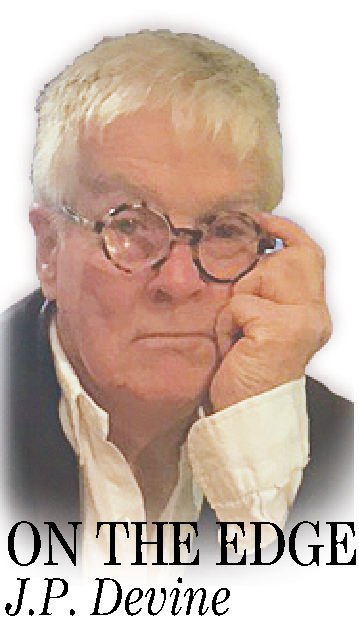At the end of World War II, my brother Jim was stationed at Treasure Island naval base on the bay at San Francisco. Some nights he and his shipmates would go to a saloon atop one of the high streets overlooking the bay and Alcatraz prison.
There they were befriended by a tweedy old guy who bought them beers and told them how he had spent 20 years on Alcatraz.
The old guy was full of stories about prison life, but there was this one line that Jim never forgot.
“The worst part,” the old man said, “was watching the lights go on at night over in ‘Frisco.'”
It didn’t mean much to me as a kid, but in the late ’70s, while visiting San Francisco, I could see the old prison, now long abandoned, slowly disappearing into the early evening fog. While standing on the wharf and looking back up at the city, I could see the lights were just beginning to go on, and it all came back.
Years later, acting in L.A., I met a guy who had been hired as technical adviser on “The FBI.” He had served 10 years for a burglary he had committed.
His job was to show the actor who played an ex-prisoner how to eat, arm around the tray, eyes down, the way to hold the fork as a weapon.
He spoke to us of how he had to get used to sleeping with his wife, how he had to have the door open to the bedroom, even the toilet, things we never give a second thought.
I remembered that today when I read Portland Press columnist Bill Nemitz’s great column about 44-year-old Tony Sanborn, who is maybe eating supper tonight with his wife and family here in Maine, after having served what must have been 25 very long years in prison. Sanborn is now free on bail after the state’s star witness, who is legally blind, recanted her 1992 testimony that implicated Sanborn in the killing of teenager Jessica Briggs on the Portland waterfront. Sanborn, who was serving a 70-year sentence for the 1989 murder, now faces a review process that will turn to whether Sanborn’s conviction should be overturned.
Sanborn’s guilt or innocence doesn’t concern me, as a writer. What interests me is what his wife or mother made him for supper that first night. Did Tony eat with his arm around the plate? What was it like to hold a sharp knife? Was he unable to sleep with his wife, while insisting on leaving the door open to the hall, to the bathroom?
Habits developed over 25 years don’t disappear overnight.
If Sanborn succeeds in having his conviction thrown out, life will return to color. This fall, he will see the leaves change, up close, and touch them. He will be able to mow the lawn and more importantly, smell the newly cut grass. He will get to shovel snow from his driveway and touch the snow.
He will hear the sound of leaves scratching across the street on a cold autumn afternoon, the refrigerator going on in the middle of the night, a doorbell, a ringing phone, even a knock on a door.
Those of us who have never been incarcerated only see prison life in movies or on television — rarely do we see the aftermath, that which lies beyond the gates, the smell of that grass, auto exhaust, your loved one’s perfume, or just that of a passing woman’s, the taste of a cold beer or a shot of bourbon.
Imagine for the first time in 25 or 40 or 50 years, hanging an ornament on the Christmas tree, the lighting of a candle, the coloring of Easter eggs, a woman’s kiss, a child’s laughter, a baby’s cry in the night, and in many cases, even watching the rising of the moon through bare-limbed trees, the setting of the sun on a lake.
There is no death penalty in Maine, at least not with a thrown switch or injection.
There is only waiting.
For a lifer without parole, death stands back in the shadows, while things remembered that once filled the heart and soul with joy slowly fade away, leaving only silence.
Imagine.
J.P. Devine is a Waterville writer.
Send questions/comments to the editors.


